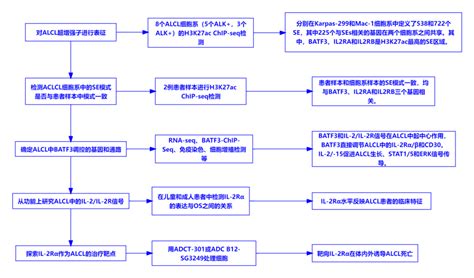蛋白质翻译后修饰有什么作用
Title: Understanding Protein PostTranslational Modification Databases
Proteins are the workhorses of biological systems, responsible for a myriad of functions crucial for life. Posttranslational modifications (PTMs) play a pivotal role in modulating protein function, stability, localization, and interactions. To catalog and comprehend these modifications, various databases have been developed. Let's delve into the realm of protein posttranslational modification databases to understand their significance and utilization in research and biotechnology.
Importance of Protein PostTranslational Modification Databases
1.
Comprehensive Repository
: PTM databases serve as centralized repositories housing a wealth of information on various modifications occurring after protein translation.2.
Data Accessibility
: These databases provide easy access to curated information, enabling researchers to explore PTMs across different organisms, tissues, and experimental conditions.3.
Facilitate Research
: By offering detailed annotations and crossreferences, PTM databases accelerate research in diverse fields such as proteomics, cell biology, and drug discovery.Commonly Used Protein PostTranslational Modification Databases
1. UniProt
Features
: UniProt offers comprehensive information on protein sequences and their annotations, including PTMs.
PTM Data
: Provides curated PTM data extracted from literature and highthroughput experiments.
Accessibility
: Userfriendly interface with advanced search options for exploring PTM data.2. PhosphoSitePlus
Focus
: Specializes in cataloging phosphorylation events across a wide range of organisms and cell types.
Data Integration
: Integrates experimental data with computational predictions, enhancing data reliability.
Tools
: Offers tools for motif analysis, protein interaction networks, and visualization of phosphorylation sites.3. dbPTM
Diversity
: Covers a broad spectrum of PTMs, including phosphorylation, acetylation, methylation, and glycosylation.
Data Sources
: Integrates data from multiple resources, providing a comprehensive view of PTM landscapes.
Analysis Tools
: Equipped with tools for sequencebased prediction of PTM sites and structural analysis of modified proteins.4. Phospho.ELM
Focus
: Primarily focuses on phosphorylation events, particularly in eukaryotic proteins.
Data Quality
: Emphasizes manual curation to ensure highquality and reliable phosphorylation site annotations.
Integration
: Links PTM data with protein structures and functional annotations, aiding in mechanistic insights.Guidelines for Utilizing Protein PostTranslational Modification Databases
1.
Define Research Goals
: Clearly outline the research objectives and specific PTMs of interest before utilizing databases to retrieve relevant data.2.
Data Verification
: Prioritize databases with curated and experimentally validated PTM information to ensure data reliability and accuracy.3.
Integration of Data
: Combine PTM data from multiple databases to obtain a comprehensive understanding of protein modifications across different biological contexts.4.
Utilize Analysis Tools
: Take advantage of builtin analysis tools provided by databases for motif analysis, structure prediction, and functional annotation of modified proteins.5.
Stay Updated
: Regularly check for database updates and new releases to incorporate the latest findings into your research endeavors.Conclusion
Protein posttranslational modification databases serve as invaluable resources for deciphering the complex landscape of protein modifications. By consolidating experimental data, annotations, and analysis tools, these databases empower researchers to unravel the functional significance of PTMs in health, disease, and cellular signaling pathways. Embracing these resources with a strategic approach enhances the efficiency and depth of research investigations in the field of proteomics and molecular biology.
References
:UniProt: https://www.uniprot.org/
PhosphoSitePlus: https://www.phosphosite.org/

dbPTM: https://dbptm.mbc.nctu.edu.tw/
Phospho.ELM: http://phospho.elm.eu.org/












评论